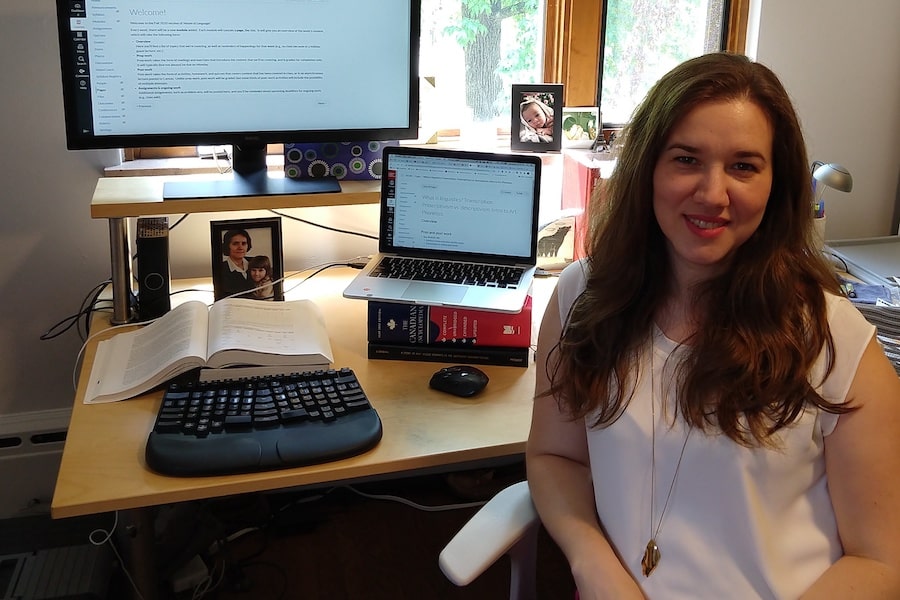
Signature Course: Nature of Language
In Nature of Language, students learn what it means to study language scientifically
The introductory course, taught by Christina Bjorndahl, special faculty in the department of philosophy, teaches undergraduates about linguistics, the science of language, introducing students to the tools to study phonetics, patterns and components of words, syntax, and even how languages change over time.
The popular gen-ed course is one of Carnegie Mellon University’s 15 signature courses this fall. Bjorndahl is working through the summer with her colleagues Mandy Simons and Tom Werner, making enhancements to the overall course for fall and incorporating a technology enhanced learning component that will be used this fall and in future semesters.
One thing that will be different this semester is that there will be no in-class tests. Instead, students will participate in frequent, asynchronous discovery activities, completing assignments and activities through online modules before they come to class. That way, they are all familiar with the materials and can use in-person time to have deeper discussions.
"I'm a big believer in pedagogy first, technology second," Bjorndahl said. "We know from learning science that more frequent, lower stakes assignments work better for students who are taking classes remotely. If a student can’t attend the live lectures, they can still get the full experience with this model."
Though the class is large, with about 120 students enrolled, Bjorndahl wants to ensure the sense of community and friendship she has felt in past years remains in the fall semester. To reinforce that dynamic, she plans to create a class wiki or blog so that students are able to share content and ideas with one another.
"This will be a space where students engage with each other, share materials about language related to what we are learning and ask questions," Bjorndahl said. "Instead of student work flowing just to me and the teaching team, it flows outward into the class. This will help us create that community that is really one of the characteristic aspects of the Nature of Language course."
Many of the lessons and projects will remain the same. In one of her favorite assignments in the course, Bjorndahl asks her students to examine the social dynamics of how we speak. For example, the issue of vocal fry.
"What we call vocal fry is actually something called 'creak' in linguistics. Creak is used in some languages to make words," she explained. "This idea that creak can be damaging to your vocal cords, as we often hear, is just not true. So, we look at this aspect of language which directly impacts students, especially women, and put it into a context of other languages to examine those claims."
Bjorndahl is looking forward to teaching in the fall.
"I trust my students, and my students don't let me down. One of the things that I found is that the more trust you place in them, the better they do," she said. "I’m excited to create an engaging, community-driven and rigorous classroom experience."